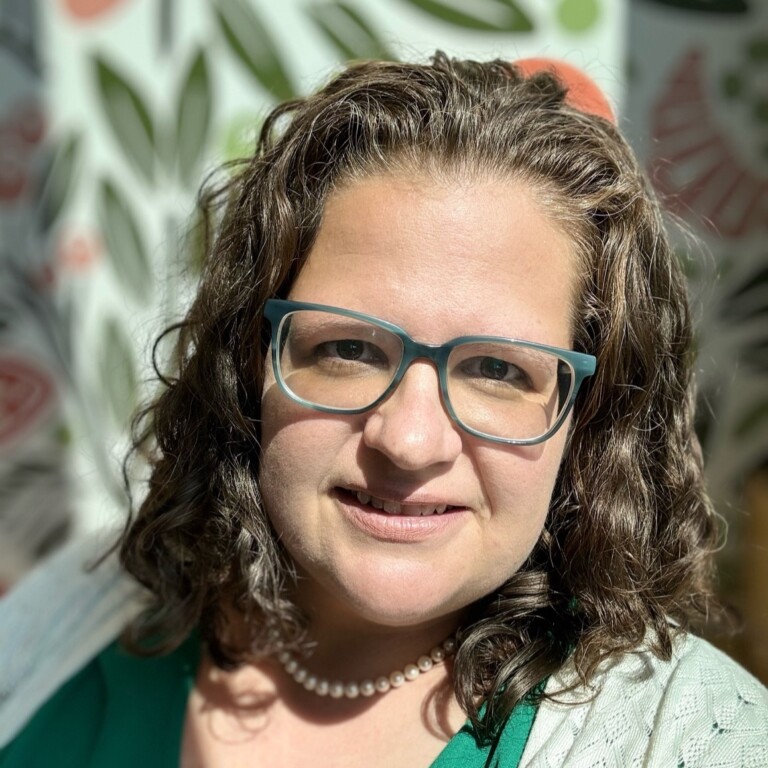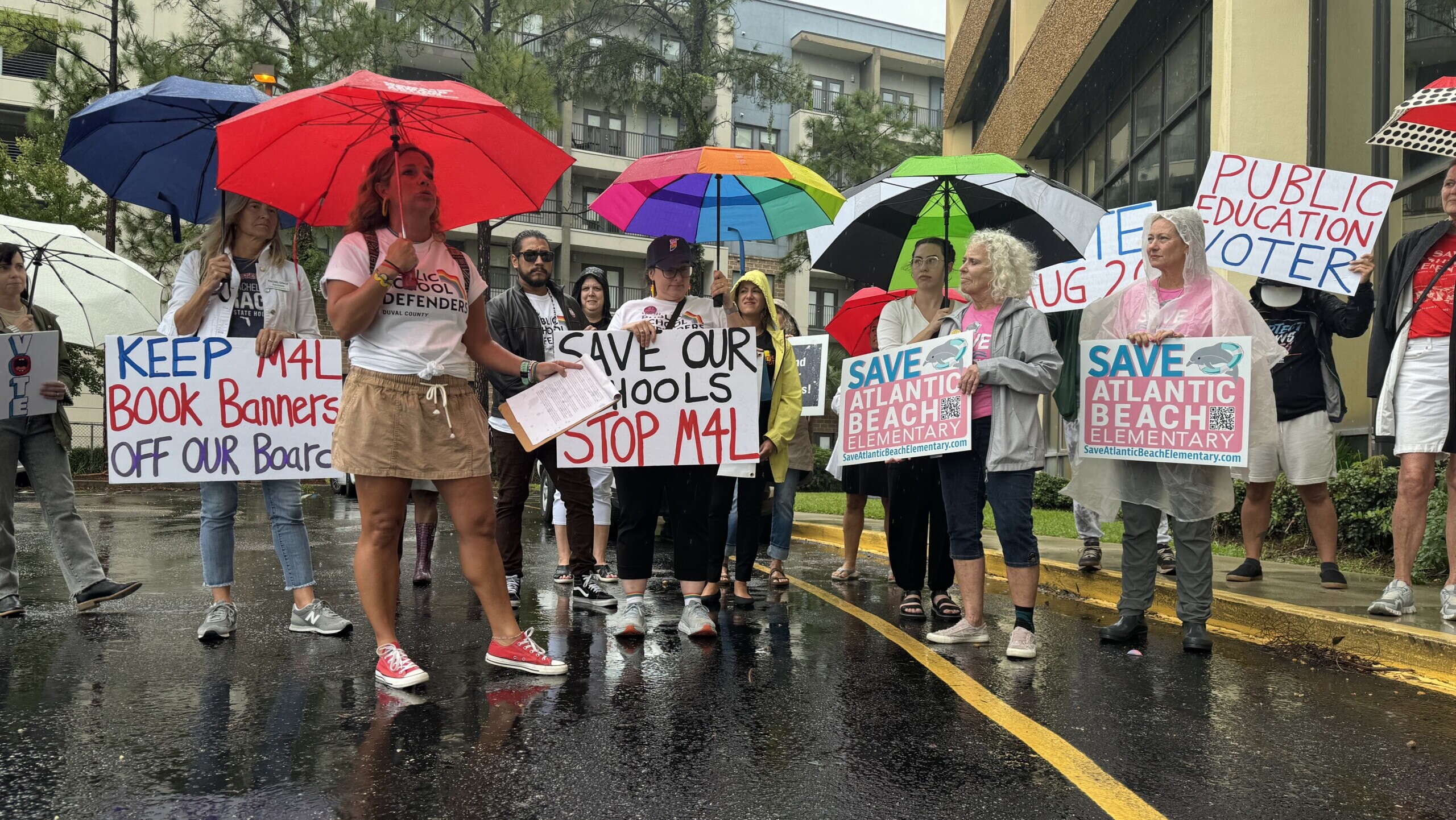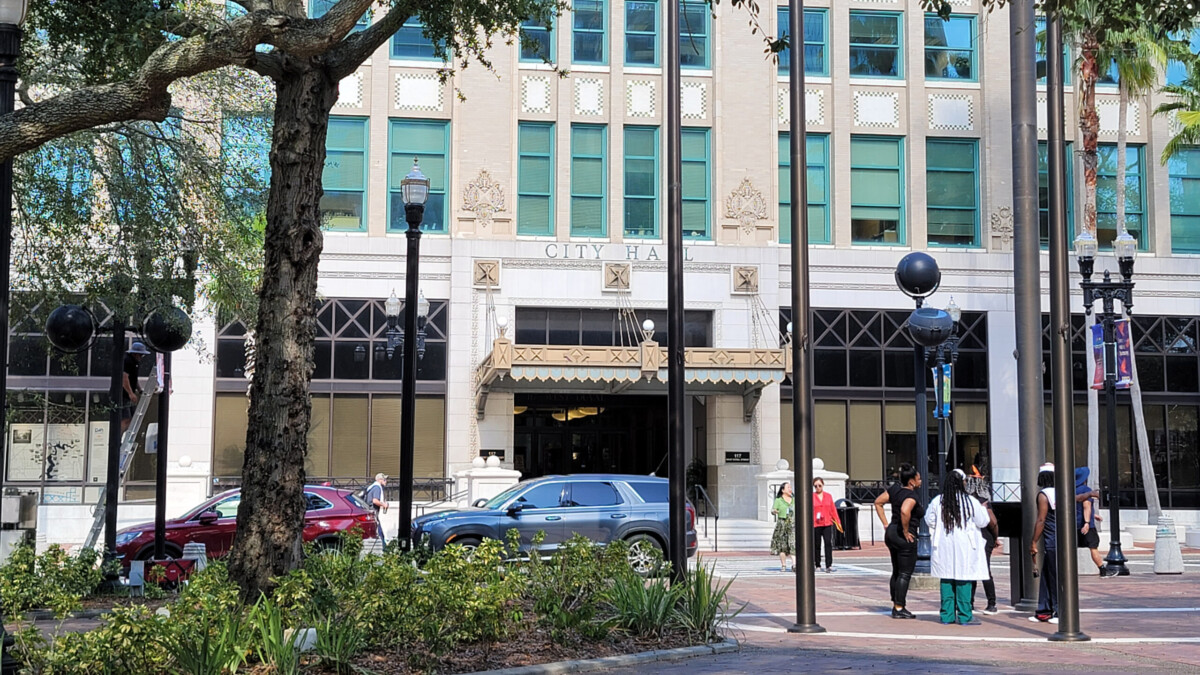Monica Gold, a Duval County language arts teacher, is prepping her classroom for the middle schoolers who will show up Monday. One thing she’s not putting out this year is books.
A few years have passed since the initial flurry of controversy and confusion over “parental rights” policies in Florida’s public schools, but teachers in the trenches of Jacksonville’s classrooms feel the lingering effects today.
“Every time I just put a book on a shelf, I’m scared,” Gold says. “What if it’s on a list, and I just don’t realize it’s on a list? I don’t want to get a felony charge.”
Although Gov. Ron DeSantis recently backtracked a bit on the state’s book-challenging process, the sociocultural issues broadly grouped under the heading of parental rights are again a topic of conversation because of the prominent role they play in Florida’s increasingly partisan school board elections.
On July 19, DeSantis formally endorsed 23 candidates for Florida’s nonpartisan school board races, including three candidates in Duval County: Tony Ricardo, Becky Nathanson and Melody Bolduc. He did not endorse Reggie Blount, who has the support of the local Republican party.
In a post on X, formerly known as Twitter, the governor said the candidates he selected had “pledged to serve with a focus on student success, parental rights and curriculum transparency.”
Parental rights is a dicey topic, though. It’s sharply partisan — think book bans, gender identity and pronouns, and curriculum content that may or may not include critical race theory. It’s a favorite talking point of conservative candidates, but it’s unclear how frequently the issues arise in classrooms.
A spokesperson for Duval Schools says the district does not have data readily available that would help answer that question.
Regardless, parental rights is generally not a salient topic outside Republican circles. The platforms of opposing candidates Nadine Ebri, Hank Rogers and Sarah Mannion express a need for transparency and student security, but they don’t mention parental rights.
Those candidates have the support of local Democrats (if not a full endorsement from the local party) and are endorsed by groups like Equality Florida. A third candidate in the race for District 5, Nahshon Nicks, also does not dwell on parental rights.
Christopher Janson is an associate professor at the University of North Florida and an expert in educational leadership and the role schools play in communities. He says Republican-backed candidates tend to be the ones bringing parents’ rights into their races.
“They seem to be the only ones talking about sociocultural issues,” Janson tells Jacksonville Today. “When I see the other board candidates, they’re talking about policy, and they’re talking about — on a deep grassroots level — what schools need to be funded equitably, to have the tools and the community buy-in to be able to function at their highest level.”
Politics in a nonpartisan race
Florida’s school board elections this year are, on paper, nonpartisan — though there’s an amendment on November’s ballot to change that. But in practice they’re rather partisan, thanks in part to DeSantis’s decision to endorse candidates in 2022 and again this year.
In Jacksonville, four seats are up for grabs on the Duval County School Board. The local Republican Party is working hard to win them. Duval GOP Chair Dean Black told Jacksonville Today last month that it’s a strategic and purposeful move on their part.
Their efforts fall in line with priorities espoused by DeSantis. All of Duval’s GOP-backed candidates have made parental rights a central tenet of their campaigns — something they say means focusing on academics instead of social-cultural issues in the classroom.
“There is no activist agenda in schools,” Janson says. “There just is no evidence of that.”
Nonetheless, Duval’s Republican-backed slate of School Board candidates are leaning into politicizing the race in the name of empowering conservative parents.
District 3 incumbent Cindy Pearson, 54 and a registered Republican, says she first ran for School Board precisely because it was a nonpartisan seat.
“I don’t think our kids should be politicized,” Pearson tells Jacksonville Today.
She says she considers how her votes will affect Duval Schools’ stakeholders — but doesn’t give much thought to how her decisions align with the party divide.
For that reason, Pearson lost her party’s support.
At the height of the pandemic, the Duval School Board voted for a mask mandate that Lakewood mom Becky Nathanson says violated state law and the will of the community. Around that time, Nathanson — who is now running against Pearson to represent San Marco and much of the Southside — also learned about a newly formed advocate group called Moms for Liberty. She helped to establish a chapter in Duval County, which she chaired until recently.
Nathanson says she wasn’t pleased with how Pearson voted on hot-button cultural matters. Pearson says politics aren’t her priority.
“I look at each issue; I try to learn as much about it as I can. I talk with people; I listen to constituents; I ask questions, and then before I vote, I pray, and I have a peace about how I vote,” Pearson says.
Last year, DeSantis included the District 3 spot in a list of 14 school board seats he wanted to flip in the 2024 election.
“Many of us who are conservative felt like someone should run against her,” Nathanson says. “There was just this groundswell of concern that the person representing us on the School Board didn’t really represent the voters who put her in office. So I decided to run.”
Nathanson, 50, has the support of many Republican leaders, including DeSantis, but treating the District 3 race as strictly partisan has proved trickier for the local GOP because both candidates are registered Republicans. Consequently, GOP Chair Black told Jacksonville Today that the party did not endorse a candidate in that race. However, Black personally endorsed Nathanson in his capacity as a state representative.
DeSantis’ list also included Duval’s District 1. There, longtime resident and local artist Tony Ricardo says he’s glad to treat the race as fully partisan.
“Most voters, when you go door to door, they ask you, ‘Are you a conservative? Are you a Democrat? Are you a liberal? How can we tell what you’re going to be for?’” Ricardo says. “And I think those are fair questions.”
Nathanson said party affiliation comes up a lot while knocking on doors, canvassing for votes.
“The first question voters ask is, ‘What party are you affiliated with?’” she says. “It’s actually something voters want to know. If I’m asked, I tell them. It’s not a secret if Ron DeSantis is endorsing me.”
Parents have the right
DeSantis picks candidates who lean into the idea of parental rights. They understandably spend more time discussing cultural issues than do their opponents — even if by talking a bit paradoxically about how cultural issues don’t belong in classrooms.
Ricardo says he’d rather bypass the cultural discussions and focus on what he calls “the main thing” — academics.
“I think the biggest problem we have in the School Board is not gender identity issues or anything like that. It’s how to read, write, how to do math problems,” he says. “I don’t care what your gender is or what you think it is — you still have to be able to read and write and do the math.”
Ricardo says schools spend too much classroom time focused on social and cultural issues. He suggests that students sometimes ask for specific pronouns because they “want the attention.”
“I don’t hate anybody. Their lifestyle is their own business, but in the public realm, it gets in the way of instruction,” Ricardo says. “Look, our kids can identify 57 different genders, but they can’t identify anything on a map. That’s a problem, you know?”
On the Westside, Army veteran and Duval Schools grandfather Reggie Blount is also running on a parental rights platform. He has the support of the Duval GOP and Moms for Liberty in his quest to secure the District 5 seat Warren Jones is vacating. But unlike the three other conservative School Board candidates, Blount doesn’t have an endorsement from Ron DeSantis.
“I believe in parental rights. I don’t think the government or any official should come in and dictate to your children what they should be,” Blount said during a recent appearance on First Coast Connect. “There’s stuff that they’re coming out with telling kids that they can crawl like animals, and we have to respect that. That’s a part of social engineering, and that is absolutely ridiculous. We’re not animals. So why would you put out books telling kids that because you can be what you want to be, this is acceptable. I don’t think that’s acceptable.”
Nathanson says she’s focused on transparency and considers herself a parental rights advocate.
“I feel like I can offer a perspective on the board that is going to provide a little more oversight and scrutiny, maybe not just go with the status quo,” she says. “Figure out how to get some of the spending under control, how to be transparent with not only where the money is going, but what decisions they’re making within the school walls that they don’t want parents to know about.”
Like other advocates in this arena, Nathanson seemingly sometimes feels at odds with the public school system.
“It’s well-defined — I would say, by our creator, but also in Supreme Court precedent — that parents have the fundamental right to direct the education, the health care and the moral upbringing of their children,” Nathanson says. “Schools can come alongside that. It doesn’t mean schools can’t choose or develop curriculum. That’s not the argument. It’s just that parents have every right to say, to opt out of certain messages or curriculum that run contrary to how they’re teaching their children at home.”
Social media candidates
Ricardo, 65, regularly posts incendiary memes to his public Facebook profile — typically many times every day. Many of his posts, dating back many years, target the LGBT community in a hurtful or harsh way.
Nonetheless, he says that if elected, he would work to represent everyone in his district — even if it means supporting things that he personally doesn’t like.
“People are trying to paint me as a, you know, kind of a bigoted person, or a person that’s not going to be fair,” he says. “I’m definitely going to be fair.”
Blount, 62, doesn’t post public content on his social media accounts often, and all of his recent posts focus on his campaign, but in 2022 he used a Twitter account to offer support to a North Carolina politician who was receiving criticism for homophobic comments.
On First Coast Connect, host Anne Schindler asked Blount how he would fairly represent constituents in his district who are part of the LGBT community.
“They deserve respect. They’re human beings, just like us,” Blount said. “I don’t separate people by what they choose to do or what they choose to believe. If I am representing them, I represent them 100% and not with a biased view.”
Team Duval
Gold, the middle school teacher, says teachers want to partner with parents.
“It is an honor to work alongside parents, and every parent that I have worked with over my six years of teaching has been incredibly supportive and kind,” Gold says. “I wouldn’t ever want to do anything to belittle their position, and I’ve not met many teachers that would want to do that.”
On her campaign website, District 7 candidate Melody Bolduc, 46, calls herself an “active and unapologetic voice for parental rights.”
As a teacher — years ago within Duval Schools and now as the owner of a local educational consulting and tutoring company — Bolduc’s perspective is more nuanced than some mainstream Republican sound bites.
“It is very difficult for children to do well if there is not a partnership between parents and teachers,” Bolduc tells Jacksonville Today. “I don’t think that parents need to be ruling what’s going on in the classroom, but I do believe that they should have knowledge, that they should be able to ask questions.”
For Bolduc, politics are a tool that help her play the game — even if it’s technically nonpartisan.
“If I could reach every voter and have conversations with every voter, that would be preferable. The problem is that you can’t,” she says. “Ultimately, I feel like I can have conversations — common-sense conversations — that most people agree with.”
Like Nathanson, Bolduc says she believes in “absolute transparency” between parents and their children’s schools because such an arrangement is mutually beneficial.
Bolduc says parents’ rights has become a hot-button issue because news stories occasionally arise that worry parents — but it’s not as pervasive an issue as some narratives suggest it is, she says. Bolduc says she could count on one hand the number of bad teachers she’s encountered over the years.
“I am hard-pressed to criticize. As a volunteer for many, many years and as a teacher who worked in the system, I did not personally meet any activist teachers,” Bolduc says. “Most of the teachers I know are working hard, are passionate, and are doing everything they can for their students.”
Gold says teachers “care deeply” about their students and their families. She says the current cultural conversation about teachers sometimes feels as if people are trying to “catch them in every single moment of their day.”
Instead, she says she would like to see people trust teachers to do their jobs well.
“To the people that think that we can keep politics out of everything, I would say that politics are in our lives, whether we want them to be or not.”







